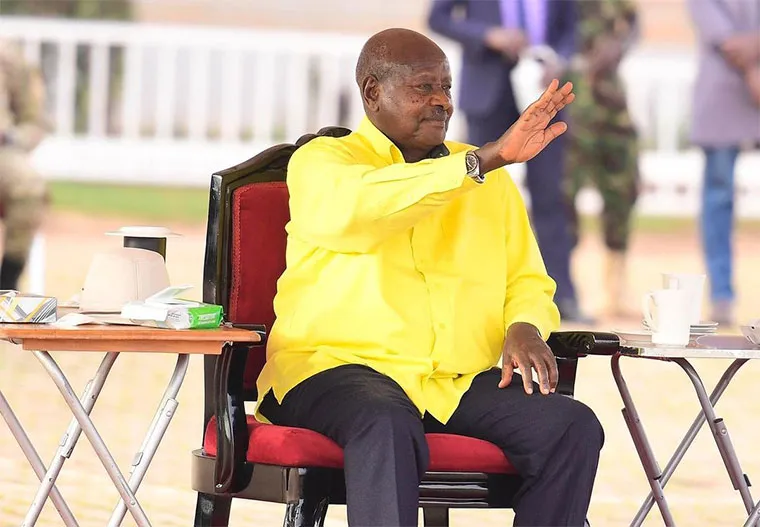President Yoweri Museveni has urged academic institutions to guide students in making wise career choices by selecting science and technology-related subjects.
He emphasized that learners must be equipped to adapt to the rapidly evolving global economy, which is largely driven by science and technology.
“The demand for skilled manpower is increasing as we scale up industrialization in Uganda,” Museveni said in a speech delivered by Vice President Maj. (Rtd) Jessica Alupo at the first Uganda Education and Career Expo held at Ntare School in Mbarara.
Museveni assured students that Uganda currently has sufficient electricity, good roads, and peace and that the government is prioritizing industrialization to reduce reliance on imported commodities.
“When we import these items, we donate both money and jobs to foreigners, leaving our children unemployed,” he noted.
The president, an old boy of Ntare School, explained that more industries in Uganda would translate into more jobs for the population and increased tax revenue for development projects.
Museveni, who joined Ntare School in 1961, highlighted that it was among the first institutions in Uganda not established along religious lines. He condemned the colonial-era sectarian education system, which divided schools based on religion.
“The religious frictions that poisoned Ugandan politics also affected education. Schools founded by Protestants and Catholics were hostile to each other,” he said.
Museveni noted that the first schools in Uganda were established by missionaries, including Gayaza High School and King’s College Budo, which were Protestant-founded, St. Mary’s College Kisubi, which was founded by Catholic White Fathers, and Namilyango College, which was founded by the Mill Hill Mission from London.
He explained that Muslim children were the most affected, as both Catholic and Protestant schools often denied them admission, and no external funding was available to establish Muslim schools.
“The Muslims, as a result, could not get clerical jobs, join the civil service, or even work as office messengers. They ended up in petty businesses like butchery and truck driving, falling behind other religious groups,” he said.
Museveni criticized the colonial government’s late involvement in education, only stepping in around 1952 to provide grants to already established schools. The president praised Ntare School for its nonsectarian stance, calling it the “correct line” taught in the Bible.
“While at Ntare, I was an active member of the Scripture Union. I still vividly remember the story of the Good Samaritan, where the least likely person helps someone in need,” Museveni shared.
Alupo congratulated Ntare School for successfully organizing the Uganda Education and Career Expo. She also commissioned a new boys’ dormitory during the closing ceremony of the four-day event.






